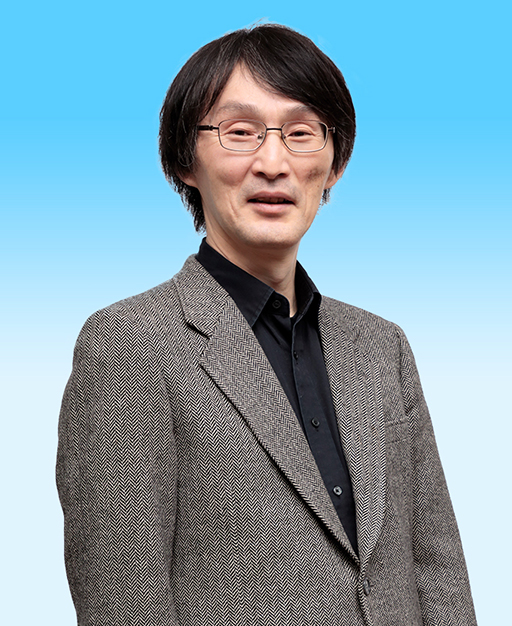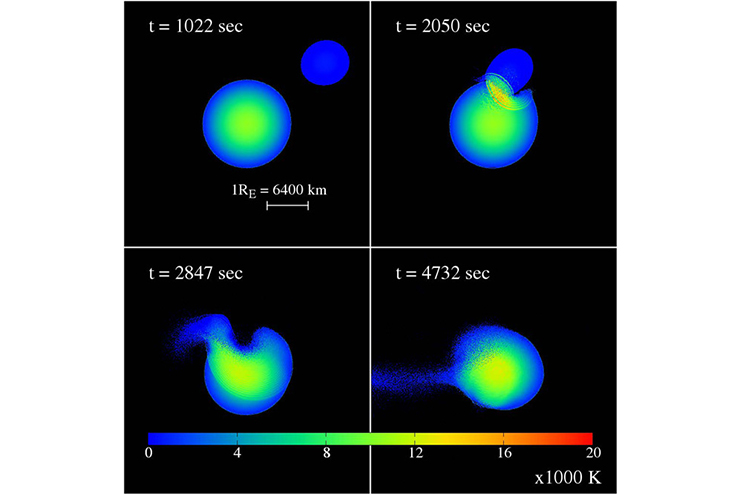TOP
 Research
Research
 Research Teams for Science of Computing and Science by Computing
Research Teams for Science of Computing and Science by Computing
 Past Research Teams
Past Research Teams
 Particle Simulator Research Team (Makino)
Particle Simulator Research Team (Makino)
Particle Simulator Research Team (Makino)
Japanese
Team Leader Junichiro Makino
- 2016
- Professor, Kobe University, Graduate School of Science, Department of Planetology (-present)
- 2014
- Deputy Project Leader, AICS (renamed R-CCS in 2018), REKEN, Flagship 2020 Project
- 2013
- Professor, Tokyo Institute of Technology, Earth-Life Science Institute
- 2012
- Team Leader, Particle Simulator Research Team, AICS (renamed R-CCS in 2018), RIKEN (-present)
- 2011
- Professor, Tokyo Institute of Technology, Graduate school of Science and Engineering, Interactive Research Center of Science
- 2008
- Director, National Astronomical Observatory of Japan, Center for Computational Astrophysics
- 2006
- Professor, National Astronomical Observatory of Japan, Division of Theoretical Astronomy
- 1999
- Associate Professor, The University of Tokyo, Graduate School of Science, Tokyo Japan
- 1994
- Associate Professor, The University of Tokyo, College of Arts and Sciences, Tokyo Japan
- 1990
- Research Associate, The University of Tokyo, College of Arts and Sciences
- 1990
- Ph.D, The University of Tokyo, Graduate School of Arts and Sciences
- 1990
- Research Associate, The University of Tokyo, College of Arts and Sciences
- 1987
- M.S., The University of Tokyo, Graduate School of Arts and Sciences
- 1985
- B.S., The University of Tokyo, College of Arts and Sciences
Keyword
- Large Scale Astrophysical Simulation
- Computer Architecture
- High Performance Computing
Research summary
Systems modeled in numerical simulations can be classified as regular grid, irregular grid, and particle systems. As the computational environment evolves, ever larger simulations have become possible. Thus, particle-based methods which can handle complex and dynamically changing shapes without special treatment, have become more important. However, it is a challenge to develop efficient parallel programs for particle-based simulations on large parallel systems such as the supercomputers K or Fugaku. We need to efficiently implement domain decomposition with near-ideal load balancing, exchange particles between domains, and improve interaction calculations of particles in different domains. On the other hand, all parallel particle simulation-programs require these functions.
Consequently, we are developing the Framework for Developing Particle Simulators (FDPS), which can be used to produce any kind of particle-based simulation. FDPS receives particle data structures and functions, evaluates interactions between particles, and generates efficient libraries for parallelization. Thus, users of FDPS can develop their own highly efficient parallel particle simulation-programs without spending large amounts of time, and so can concentrate on realizing their goals.
Main research results
World’s first highly efficient general-purpose framework for particle-based simulations
By employing FDPS, we have succeeded in creating application programs for particle-based simulations not specifically optimized for large-scale parallel computing to run efficiently on top-ranked supercomputers such as the K computer. On the K computer, we achieved efficiency gains of around 50% for gravitational many-body simulations and for SPH simulations, at up to full-node execution. FDPS also supports GPGPU systems, and application programs can be developed both with C++ and the Fortran languages. We are currently working on a highly efficient implementation for heterogeneous many-core systems.
FDPS has already been used for various large-scale simulations, including the largest simulation ever of the giant impact hypothesis used to explain the moon’s formation, and the first full simulation of rings around asteroids. These simulations would have been impossible without FDPS.

Representative papers
- Iwasawa, M., Tanikawa, A., Hosono, N., Nitadori, K., Muranushi, T. and Makino, J.:
"Implementation and performance of FDPS: a framework for developing parallel particle simulation codes"
Publications of the Astronomical Society of Japan, Volume 68, Issue 4, id.54 (2016)
- Hosono, N., Saitoh, T. R., Makino, J., Genda, H. and Ida, S.:
"The giant impact simulations with density independent smoothed particle hydrodynamics"
Icarus, Volume 271, p. 131-157. (2016)
- Hosono, N., Saitoh, T. R. and Makino, J.:
"A Comparison of SPH Artificial Viscosities and Their Impact on the Keplerian Disk"
The Astrophysical Journal Supplement Series, Volume 224, Issue 2, article id. 32 (2016)
- Saitoh, T. R. and Makino, J.:
"Santa Barbara Cluster Comparison Test with DISPH"
The Astrophysical Journal, Volume 823, Issue 2, article id. 144 (2016)
- Hosono, N., Iwasawa, M., Tanikawa, A., Nitadori, K., Muranushi, T. and Makino, J.:
"Unconvergence of Very Large Scale GI Simulations"
Publications of the Astronomical Society of Japan (2016)
- Yamamoto, S. and Makino, J.:
"A formulation of consistent particle hydrodynamics in strong form"
PASJ, Volume 69, 35 (2017)
- Iwasawa, M., Oshino, S., Fujii, M. S., Hori, Y.:
"PENTACLE: Parallelized particle-particle particle-tree code for planet formation"
PASJ, Volume 69, Issue 5, id.81 (2017).
- Namekata, D. et al.:
"Fortran interface layer of the framework for developing particle simulator FDPS"
PASJ, Vol 70, Issue 4, id 70. (2018).
- Karato, S. I.; Hosono, N.; Makino, J.; Saitoh, T. R.:
"Terrestrial magma ocean origin of the Moon"
Nature Geoscience 12, 418-423 (2019).
- Yamamoto, S. and Makino, J.:
"Hermite integrator for high-order mesh-free schemes"
PASJ, Vol 71, Issue 1, id 18. (2019).
